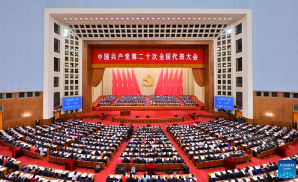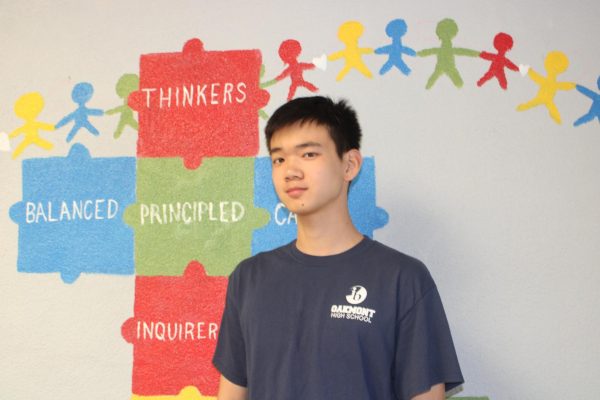The 20th CCP congress concludes, leaving Xi with even more power
A summary of significant occurrences at the 20th CCP congress, as well as some analysis.

Photograph of the 20th CCP congress held in the Great Hall of the People, in Beijing.
November 10, 2022
The 20th Chinese Communist Party (CCP) congress (中国共产党第二十次全国代表大会) recently came to an end. The CCP congress, held from Oct. 16 to Oct. 22 in Beijing, saw General Secretary Xi Jinping secure a third term, several amendments to the constitution, and new members to the Politburo and its Standing Committee.
During the opening speech, General Secretary Xi Jinping defended China’s “Zero Covid” policy, advocated for reunification with Taiwan, and also for “common prosperity.” Xi’s speech on maintaining these policies showed little change, but rather continuity.
“We must foster a firmer sense of purpose, fortitude and self-belief in the whole party and the Chinese people,” Xi said. “We cannot be swayed by fallacies, deterred by intimidation or cowed by pressure.”
During the congress, several amendments were implemented to the Party constitution, including the “Two Establishes” and “Two Safeguards,” which defined and assured Xi’s “core” status in the party, respectively. Other amendments include “common prosperity,” modernization, political loyalty in the military, and opposing Taiwan independence.
The CCP congress also saw changes in the leadership. The Standing Committee, the party’s top leadership, saw replacements and new members. It has been observed that the new members are all people loyal to Xi, leading to speculations that Xi is filling the political system with people who will support him, giving him more power.
For example, Li Keqiang, the Premier of China and number two leader, is set to be replaced by Li Qiang, a loyalist to Xi. Filling the Standing Committee with loyalists means that there will be little-to-no checks and balances on Xi’s power, further consolidating his power.
An incident that occurred during this congressional meeting which attracted much media attention was former President Hu Jintao’s forced exit. During the closing ceremony, Hu, sitting next to Xi Jinping, was escorted out by a staff member. This led to much speculation overseas, including rumors that Hu had been purged. Xinhua News, China’s official state news agency, reported that Hu had not been feeling well during the session. However, it has been observed that when Hu was escorted out, he appeared unwilling to leave.
Overall, Xi emerged from the congress stronger than ever, set for a third term. This sets him up to potentially be the most powerful leader since Mao Zedong, China’s founding father.


